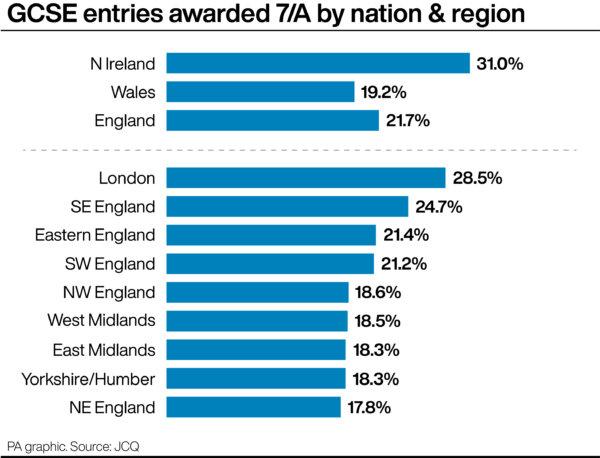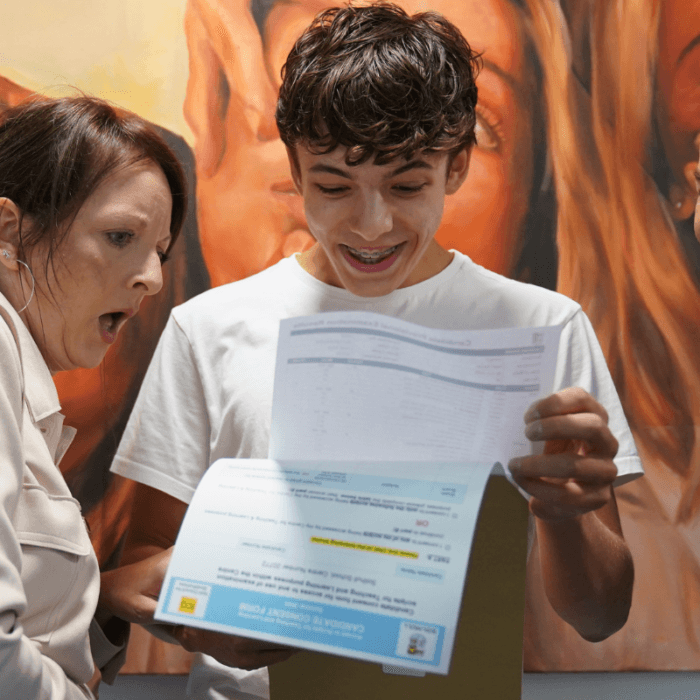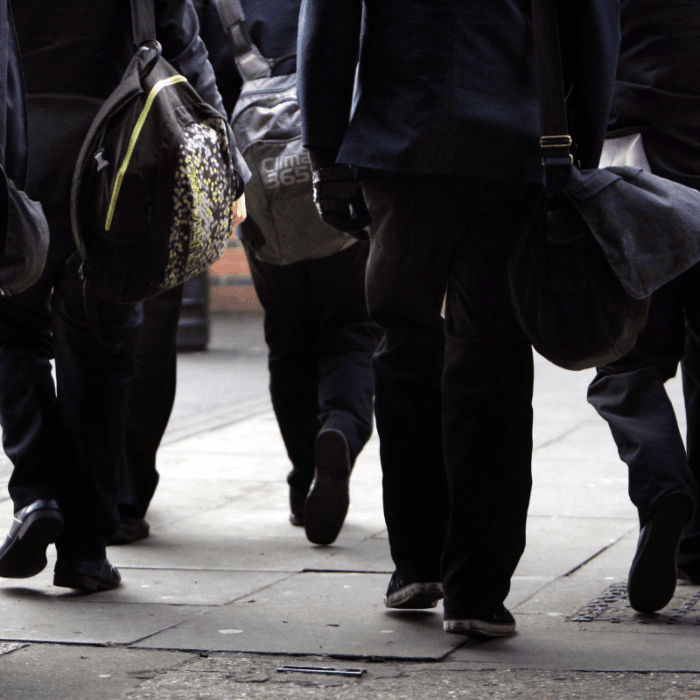The proportion of top GCSE grades awarded this year has fallen compared with 2023, but it is still higher than pre-lockdown levels, results released on Thursday have shown.
Across England, Wales, and Northern Ireland, 16-year-olds are receiving their GCSE results in the first year that all three nations have returned their grading regimes to pre-COVID-19 standards.
In 2024, more than one-fifth (21.8 percent) of GCSE entries across the UK were awarded the top grades—at least a 7 or an A—which is down on 2023 when 22 percent achieved the highest marks.
However, 2024’s results are higher than the 2019 figure of 20.8 percent.
According to figures published by the Joint Council for Qualifications (JCQ), the proportion of entries getting a “standard pass”—a 4 in England or a C in Wales and Northern Ireland—has fallen from 68.2 percent in 2023 to 67.6 percent this year, but still higher than 67.3 percent in 2019.
Chief Executive of the JCQ Margaret Farragher said, “These achievements are hard-earned and students should feel justly proud to have reached this important milestone in their educational journey.”
Lockdowns
During the COVID-19 lockdown era, the government closed schools and shifted to remote learning.Not only was in-class teaching disrupted, but so were assessments, with final results being based on teacher assessments instead of exams, leading to an increase in top GCSE and A-level grades in 2020 and 2021.
In England, assessments returned to normal in 2023, with Northern Ireland and Wales returning to pre-lockdown standards this summer.
Sir Ian Bauckham, chief regulator of Ofqual, said: “Consistent, rigorous standards of grading are producing consistent results. It is evidence that we have settled back into a pattern of dependable and trustworthy results.”
Others have warned that those who started school during lockdown will be particularly affected.
Regional Disparities
Regional disparities in achieving the highest grades persist between the north and south of England. London saw the highest proportion of entries awarded grades 7 or above (28.5 percent) with the northeast having the lowest (17.8 percent).However, this gap narrowed marginally to 10.7 points while in 2023 it was 10.8 percent.
Pepe Di'Iaiso, the general secretary of the Association of School and College Leaders, said of the “significant differences” in regional outcomes, “This suggests that relative levels of prosperity and socioeconomic disadvantage continue to play a huge part in educational outcomes, and addressing these gaps must be a key priority for the new government working alongside the education sector.”

Gender Gap
Like with A-level results, the lead girls have over boys for the top grades has narrowed slightly, with the total of girls awarded 7/A or above being 24.7 percent, 5.7 points higher than boys (19 percent).This is the narrowest lead held by girls since 2009, when it was also 5.7 percent.
In 2023, girls led boys by 24.9 percent to 19.1 percent, a gap of 5.8 percent.
The most popular subjects were, unsurprisingly, the mandatory subjects: English language, mathematics, and double science.
Among subjects with more than 100,000 entries, business studies saw the largest percent increase, up 9.7 percent from 123,166 in 2023 to 135,090 this year.
Scotland, which has National 5 qualifications instead of GCSEs, saw earlier this month the pass rate at 77.2 percent, down from 78.8 percent last year and 78.2 in 2019.







